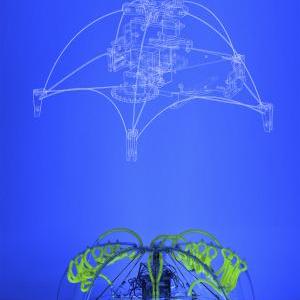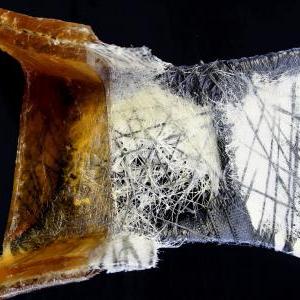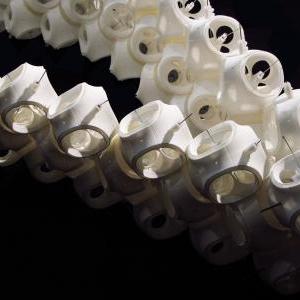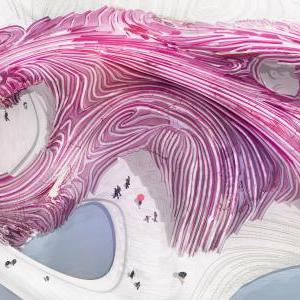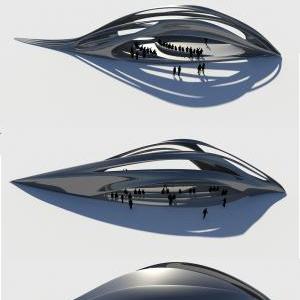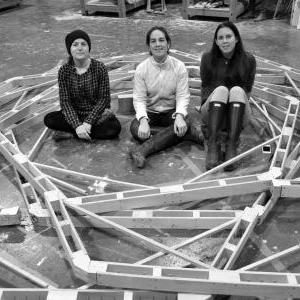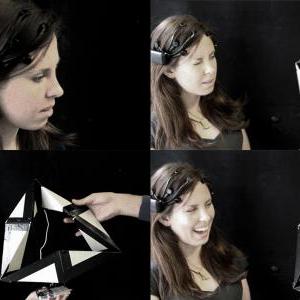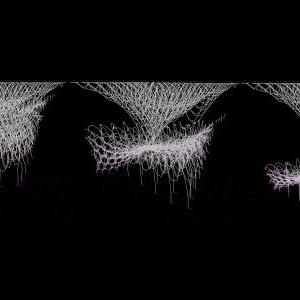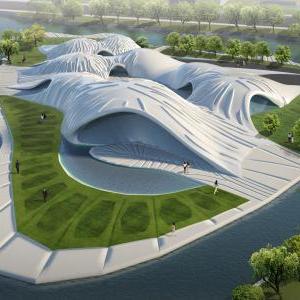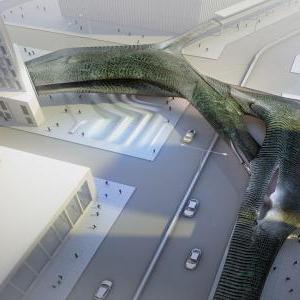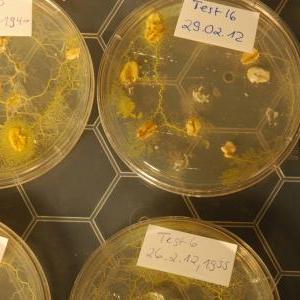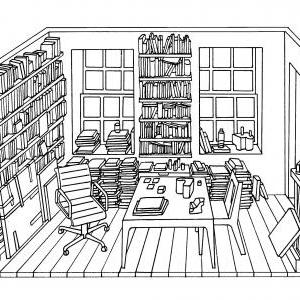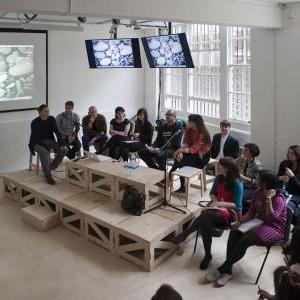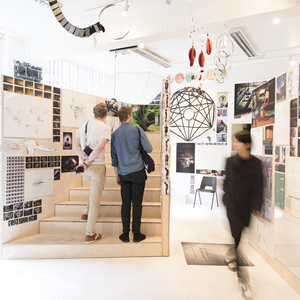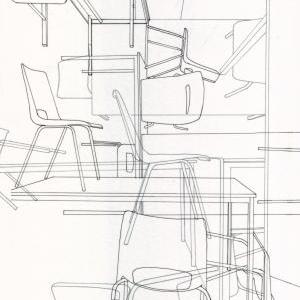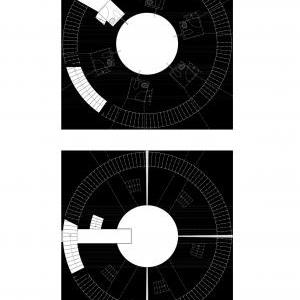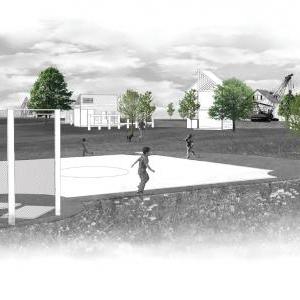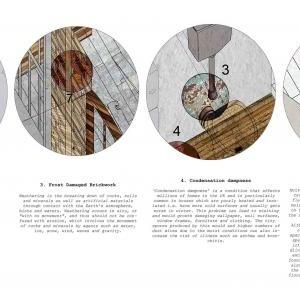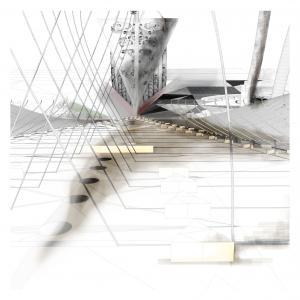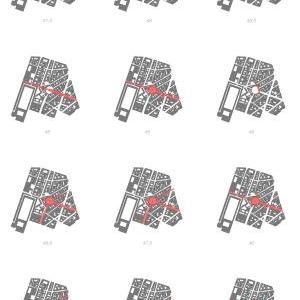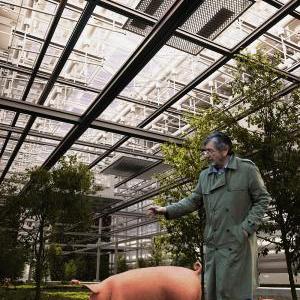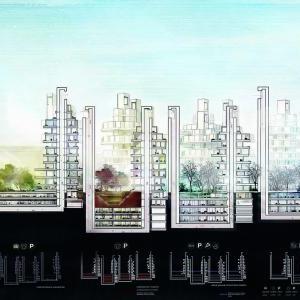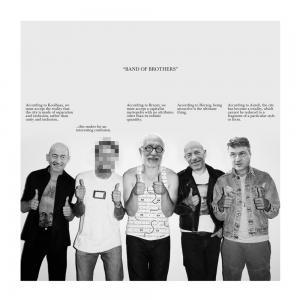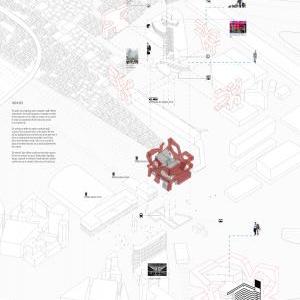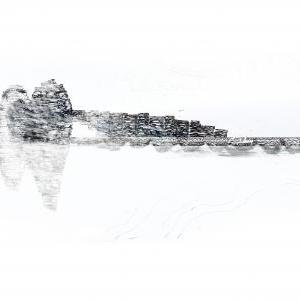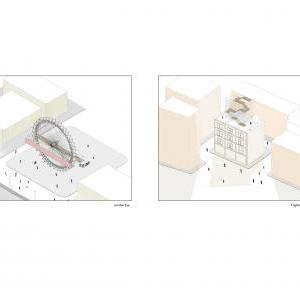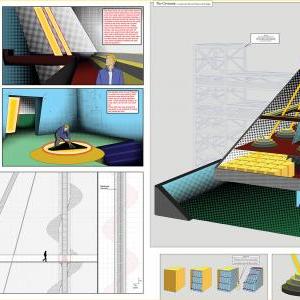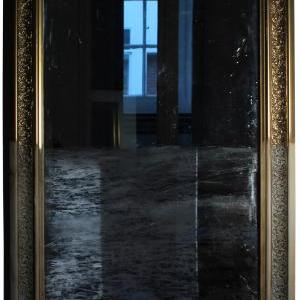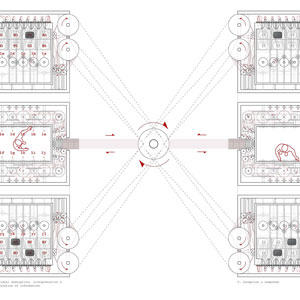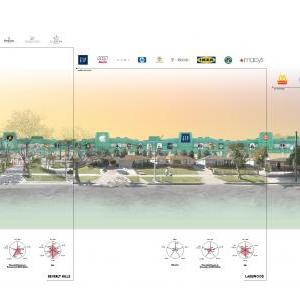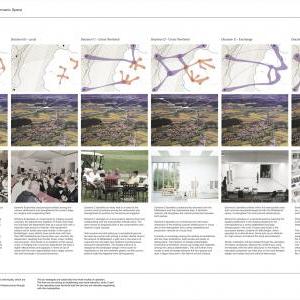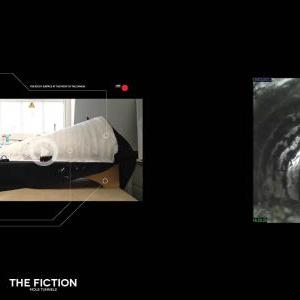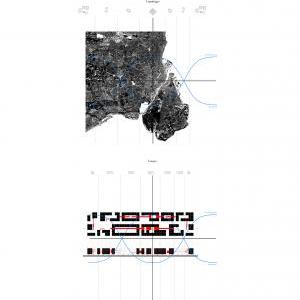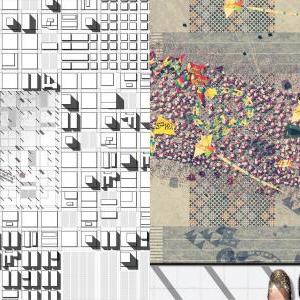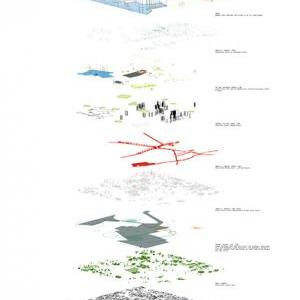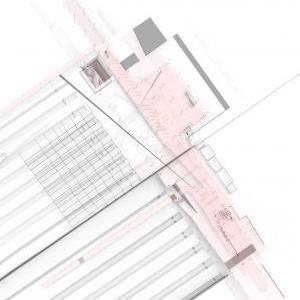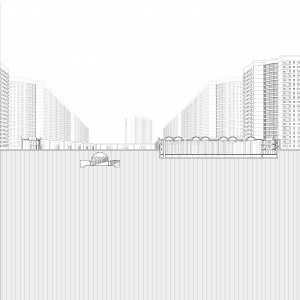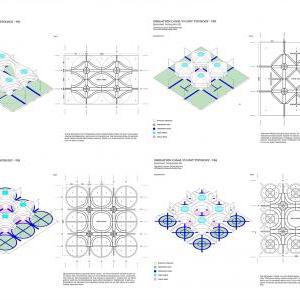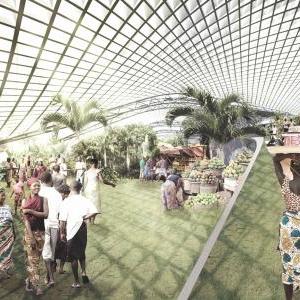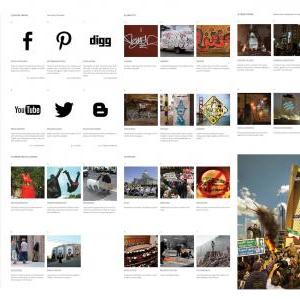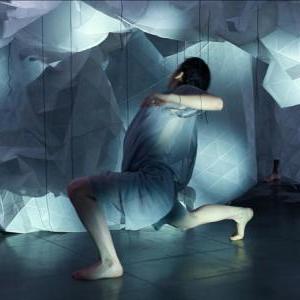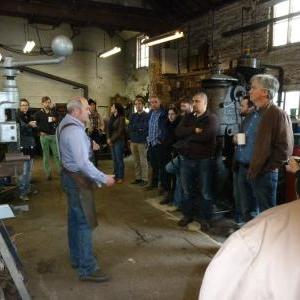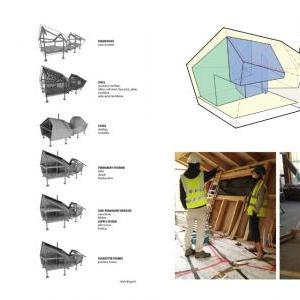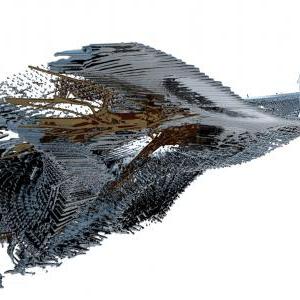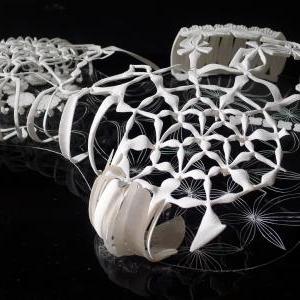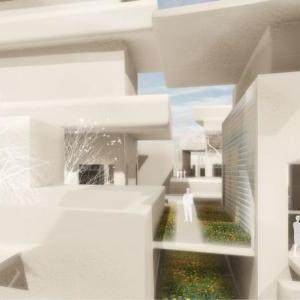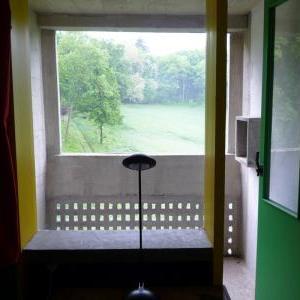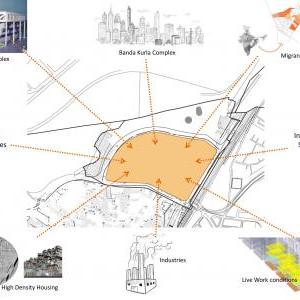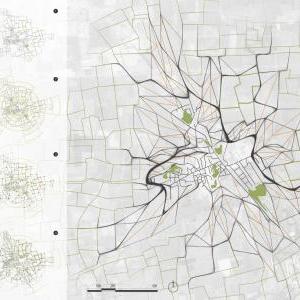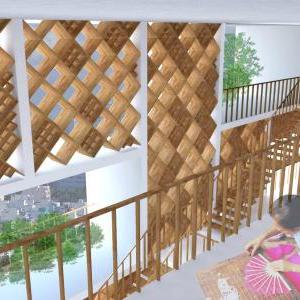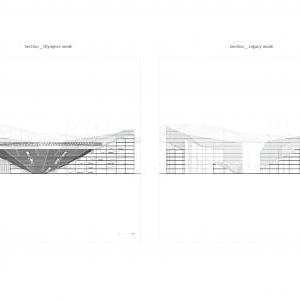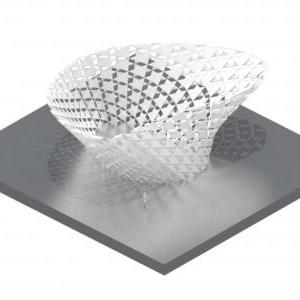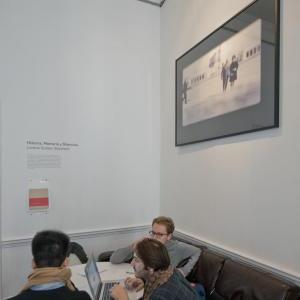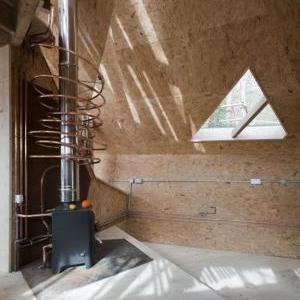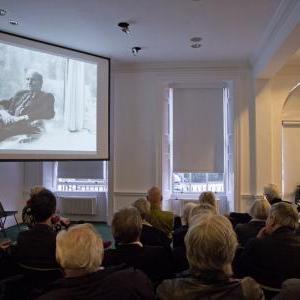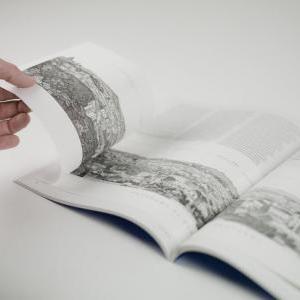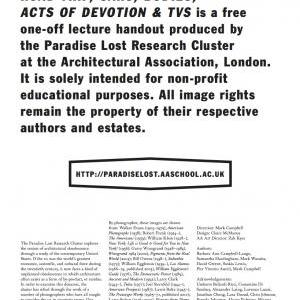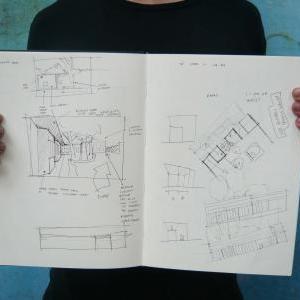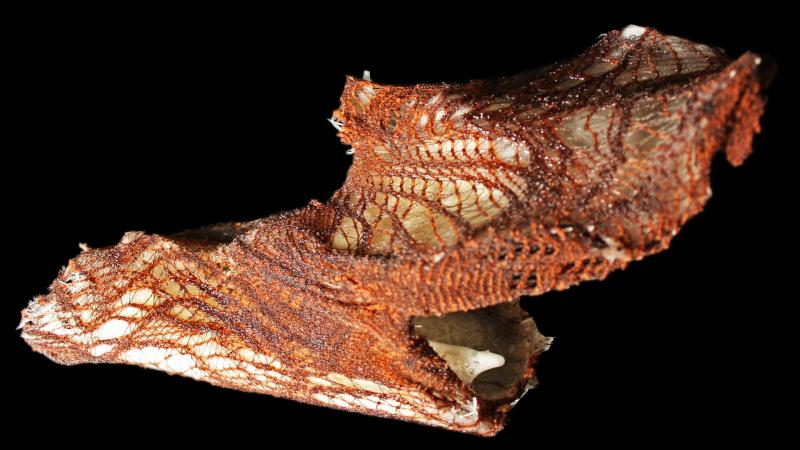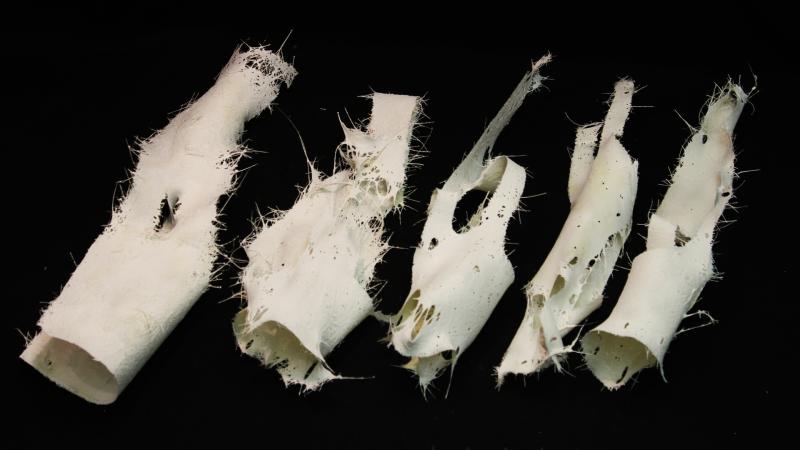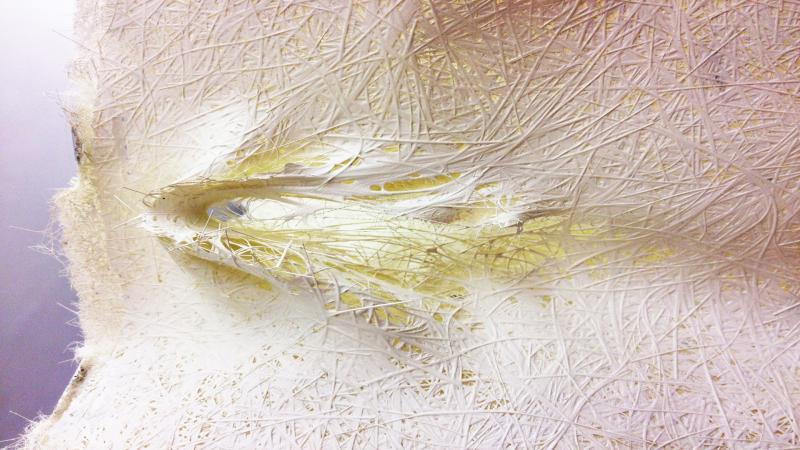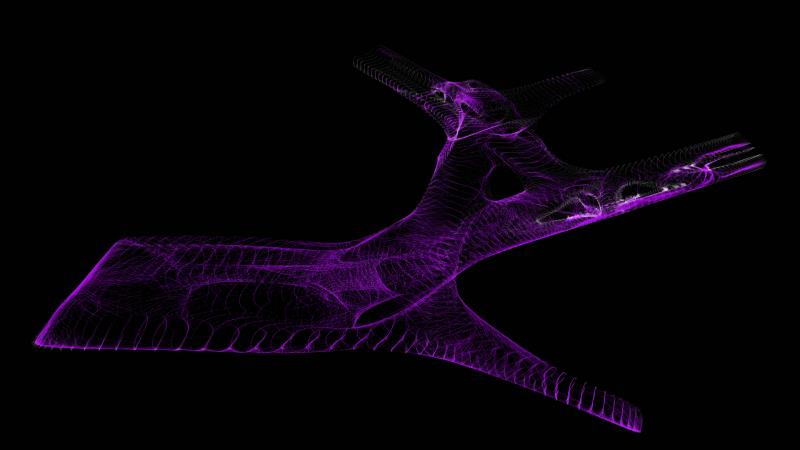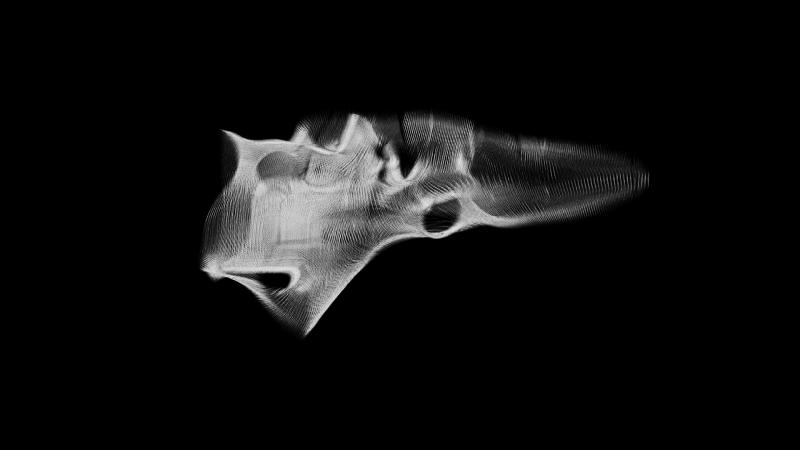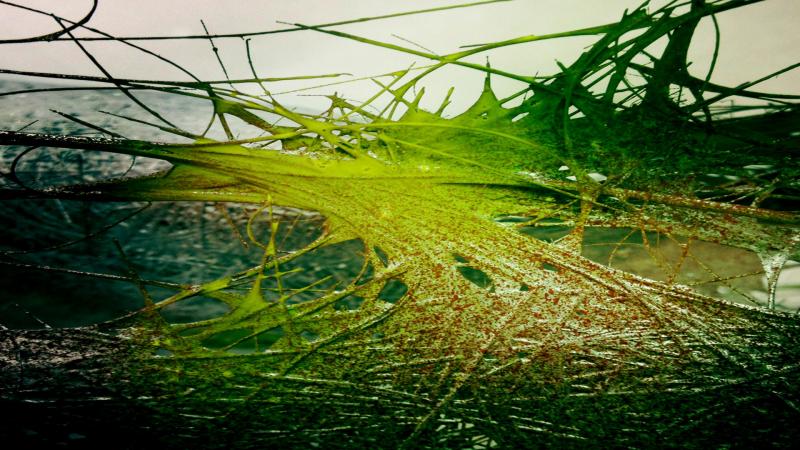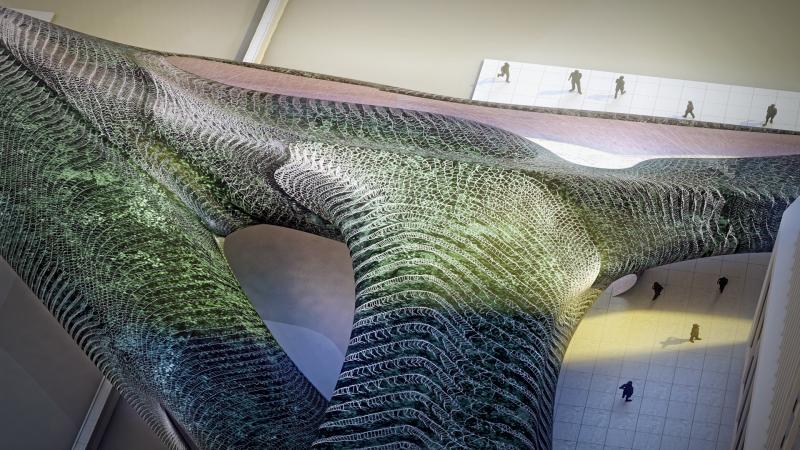This year the Design Research Laboratory (DRL) concluded the final year of the four-year design research agenda Proto-Design, which investigated digital and analogue forms of computation in the pursuit of systemic design applications that are scenario- and time-based. Considering controls systems as open acts of design experimentation, the DRL examines production processes as active agents in the development of architecture. Behavioural, parametric and generative methodologies of computational design are coupled with physical computing and analogue experiments to create dynamic and reflexive feedback processes. New forms of spatial organisation are explored not as type- or context-dependent but by examining scenarios that evolve as ecologies and environments that seek adaptive and hyper-specific features.
This performance-driven approach aims to develop novel design proposals concerned with the everyday. The iterative methodology of the design studio focuses on the investigation of spatial, structural and material organisations, engaging with contemporary discourses of architecture and urbanism. Four research studios run in parallel, exploring the possibilities of Proto-Design. Theodore Spyropoulos’ studio, Synthetic Natures: Behavioural Machines, investigates behaviour as the means to explore self-regulating and deployable soft systems. Parametric Semiology 2 – Habitat as System of Signification, led by Patrik Schumacher, focuses on how the societal function of urban and architectural design can act as an innovative ordering and framing of communicative interaction. Robert Stuart-Smith’s studio, Behavioural Matter, explores how non-linear design processes may be instrumentalised to generate a temporal architecture with a designed life-cycle. Reconsidering Elementarism, led by Philippe Morel, addresses the relationships between technology, architecture and mathematics by revisiting research on Elementarism in the 1920s and its cybernetic reinterpretations of the 1960s.
Director
Theodore Spyropoulos
Founder
Patrik Schumacher
Course Masters
Shajay Bhoosan
Philippe Morel
Robert Stuart-Smith
Course Tutors
Pierandrea Angius
Mollie Claypool
Ryan Dillon
Mostafa El-Sayed
Manuel Jiménez García
Jose Sanchez
Technical Tutors
Albert Taylor & AKT
Software Tutors
Torsten Broeder
Paul Jeffries
Tyson Hosmer
Programme Coordinator
Ryan Dillon
Invited Critics
Lucy Bullivant
Helen Castle
Mark Cousins
Didier Faustino
David Jason Gerber
David Greene
Adrian Lahoud
Marta Malé- Alemany
David Ruy
Marcelo Spina
Brett Steele
Albert Taylor
Peter Testa
Tom Wiscombe
RES
Project name: Singular Branching
Team: Felipe Escudero (Ecuador), Giovanni Parodi (Italy), Dimitrije Miletic (Serbia), Dimitar Pouchnikov (Bulgaria/USA)
Studio: Robert Stuart-Smith assisted by Tyson Hosmer
RES approaches the proto-design agenda as a problem of how to conceive and manufacture bespoke architectural parts that come together to provide differentiated spaces through continuous material organisation on multiple scales. Our understanding of building cycle is situated within the design of a process that is generative at the conception level as well as at the manufacturing level. This process consists of conceiving a building that responds to complex site conditions and simulating its manufacturing and assembly with the intention that although the intricacies of production are messy and not linear, the final architectural product is delivered as one entity. We use fibre-reinforced composite as a material that can be manufactured in a way so that the fibre patterning is intrinsically related to the building form. We propose that structural analysis of the building as a whole determines vectorial flows, fibres are then placed on parts by machines following agent based drawings of strand organisation, finally parts are cast in suspension and assembled on site. While automating parts of this process and avoiding moulds traditionally used with Fibre Reinforced Composites minimise labour and construction tools, our interest resides in the discovery of interesting tectonic moments born out of this processes.
